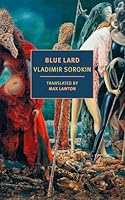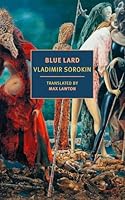- Welcome to FictionDB, Guest
- | My Account
- | Help

Blue Lard — Vladimir Sorokin
buy the book from amazon
Paperback editions:
Hardcover editions:
eBook editions:
Audio editions:
Large Print editions:
Browse Similar Books at Amazon
Literature & Fiction->Genre Fiction->Political
Literature & Fiction->Humor & Satire->Satire
Description
Blue Lard is an act of desecration. Blue Lard is what's left after the towering masterpieces of Russian literature have been blown to smithereens, the most graphic, shocking, controversial, and celebrated book to be published in Russia since the end of Communism. Denounced as an abomination on publication in 1999 -- a crowd of angry Putin supporters gathered in front of Moscow's Bolshoi Theater to toss shredded copies of Sorokin's books into an enormous papier-mâché toilet -- this ferocious takedown of Russian greatness has since found its way into the canon of Russian literature itself.
The book begins in a futuristic laboratory where genetic scientists speak in a dialect of Russian mixed with Chinese. There they work to clone famous Russian writers, who are then made to produce texts in the style of their forebears. The goal of this “script-process” is not the texts themselves but the blue lard that collects in the small of their backs as they write. This substance is to be used to power reactors on the moon -- that is, until a sect of devout nationalists breaks in to steal the blue lard, planning to send it back in time to an alternate version of the Soviet Union, one that exists on the margins of a Europe conquered by a long-haired Hitler with the ability to shoot electricity from his hands. What will come of this blue lard? Who will finally make use of its mysterious powers?
Max Lawton's translation of Blue Lard, the first into English, captures this key work in all its grotesque, havoc-making, horrifying, visceral intensity.
CERTAIN CONTENT THAT APPEARS ON THIS PAGE COMES FROM AMAZON. THIS CONTENT IS PROVIDED ‘AS IS’ AND IS SUBJECT TO CHANGE OR REMOVAL AT ANY TIME.


 Amazon UK
Amazon UK